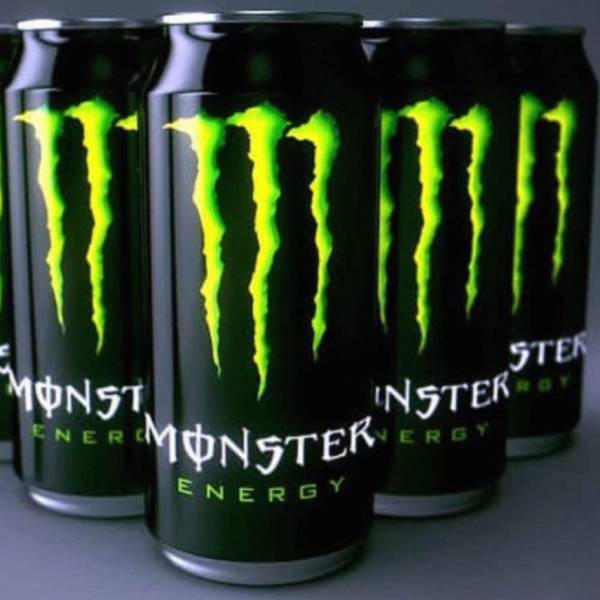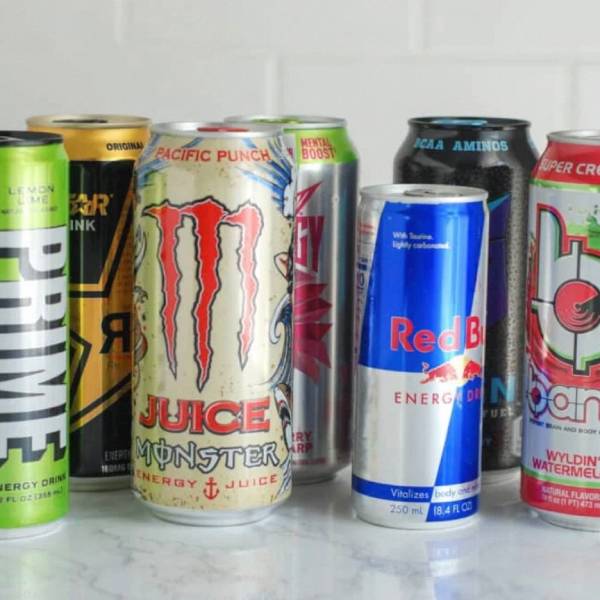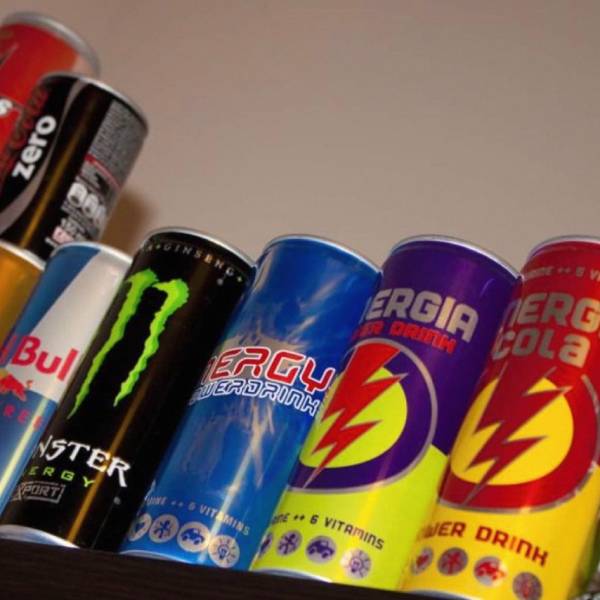Introduction to Energy Drink Consumption and Age Concerns
Energy drinks have soared in popularity among all age groups, especially young people. They promise instant energy boosts and improved performance. But this rise in consumption sparks major health concerns. Many wonder if age restrictions, like “do you have to be 18 to buy energy drinks”, are necessary. This blog explores the reasons behind these worries.

Youth attract to the vibrant packaging and aggressive marketing of energy drinks. But their bodies may not be ready for high caffeine and other stimulants. This brings us to the question – should there be a legal age requirement? Health experts and parents are pressing for it.
Some countries are already setting legal age limits for buying energy drinks. The goal is to shield minors from potential health risks. This debate on age restrictions is not just about health. It affects retailers and manufacturers too. They may need to adjust strategies in response to new laws.
Through this blog, we’ll delve into the legal age to buy energy drinks. We’ll look at the health risks of underage consumption and country-specific laws. The views of the public and how stores deal with age restrictions will be discussed. Finally, we’ll consider healthier options for younger consumers.
The discussion aims to provide a clear overview. It will help readers understand why age restrictions might be necessary. And it will give insights into the various perspectives on this issue. Stay tuned as we explore the complex world of energy drink consumption and age concerns.
Legal Age Requirements for Buying Energy Drinks
Countries around the world acknowledge the health risks of energy drinks to younger populations. This recognition has led to implementing legal age requirements. The central query, ‘do you have to be 18 to buy energy drinks’, illustrates a common benchmark. Many jurisdictions have set 18 as the minimum age for purchasing these beverages. While many countries regulate the sale of energy drinks due to health concerns, there are still debates about the safety of ingredients, including energy drinks containing bull sperm, raising questions about consumer awareness and protection, especially for younger buyers.
In practice, legal age restrictions vary by country and sometimes within regions of a country. In the United States, there is no federal law that dictates a legal age. However, certain states and cities may enforce their own rules. Across the Atlantic, the United Kingdom passed legislation mandating customers to be 16 years old to buy energy drinks. This reflects a global trend towards restricting access to these high-caffeine drinks by minors.
The age limit serves multiple purposes. It aims to reduce health risks for young consumers. It also raises awareness about the potential side effects of energy drink consumption. The choice of the age limit, often 18, corresponds to the age of majority. This is when individuals are deemed capable of making informed decisions about their health.
Retailers play a crucial role in upholding these age requirements. They must check IDs and refuse sales to underaged individuals. Failure to comply can lead to fines and other penalties. This underscores the role that laws and regulations play in protecting public health, especially among susceptible youth.
The legal age for energy drink purchases underscores a commitment to public health. As such, it is crucial to gain an understanding of local laws concerning these purchases. Consumers should be mindful of these regulations and their implications for young individuals seeking energy drinks.
Health Risks Associated with Underage Energy Drink Consumption
Energy drinks carry risks for youth. Excessive caffeine can harm developing bodies. Youngsters often ignore the dangers. They may face heart issues, anxiety, and sleep problems. Headaches and addiction are also concerns.
These drinks have high sugar content too. This can lead to obesity and dental issues. Young people at risk for type 2 diabetes should be cautious. The instant energy spike from sugar is followed by a crash. This cycle can disrupt healthy energy levels. Understanding the facts about energy drinks is crucial, as their high sugar content not only poses a risk for obesity and dental problems but also leads to energy spikes followed by crashes, which can seriously disrupt overall health and energy levels, particularly for young individuals at risk for type 2 diabetes.
The health risks go beyond physical. Mental health can suffer. Studies link energy drink consumption with stress, nervousness, and irritability in youth. Plus, mixing these drinks with alcohol is common among teenagers. This risky behavior increases the chance of serious accidents.

Energy drinks also contain other stimulants. Ingredients like guarana and taurine amplify caffeine’s effects. We don’t fully know these substances’ long-term impact on youths. But the short-term effects are enough to cause worry.
To sum up, underage energy drink consumption can have lasting, negative effects. Heart problems, mental health issues, and addictive patterns are real dangers. It is important to oversee young people’s consumption of these beverages. That is why age restrictions are under consideration globally.
Country-Specific Laws on Energy Drinks for Minors
When it comes to the sale of energy drinks to minors, laws vary greatly around the world. For instance, some countries like the United Kingdom have clear legal guidelines. Minors under 16 cannot purchase these high-caffeine beverages. This helps protect them from the potential health risks.
In other parts of Europe, the approach is similar. Many countries enforce age restrictions to curb underage consumption. These laws reflect growing concerns about health risks tied to energy drinks.
The situation is different in the United States. There is no uniform federal law. But, some states and cities have taken steps to implement their own restrictions. For example, grocery stores in certain areas may ask “do you have to be 18 to buy energy drinks” before processing a sale.
Canada has set regulations on the marketing of energy drinks. These rules aim to limit the appeal of these products to children and teenagers.
Australia and New Zealand have adopted the ‘do not sell to children under a certain age’ policy in many stores, although this is not always legislated.
It’s essential for both consumers and retailers to be aware of their country’s specific laws. Knowing the age at which you can legally buy energy drinks is crucial. It ensures that retailers adhere to local regulations and protects minors from unintended harm.
These varied laws across nations seek to balance public health with consumer freedoms. They also reflect local cultural attitudes towards energy drink consumption among youth. As international dialogue continues, more countries may introduce or adjust their regulations concerning energy drinks for minors.
Impact of Age Restrictions on Retailers and Manufacturers
The impact of energy drink age restrictions extends beyond health concerns. It shapes how retailers and manufacturers operate. For retailers, they must adapt by checking IDs more often. This is to ensure buyers meet the minimum age, often asked as ‘do you have to be 18 to buy energy drinks’. Failing to comply can lead to penalties like fines and loss of reputation.
Manufacturers face challenges too. They might need to change their marketing strategies. Ads can no longer target younger audiences. Product designs might have to be less appealing to minors. Age restrictions can limit their market size. They could see a drop in sales if young people can’t buy their products legally.

Both groups must engage with regulatory changes actively. Retailers have to train staff on new laws. Manufacturers may have to reformulate products to reduce health risks. They might also explore new markets or age-appropriate products. This could maintain sales while complying with legal guidelines.
Overall, age restrictions require significant adjustments. Retailers and manufacturers need to balance profit with responsibility. They must follow the law and protect younger individuals from potential harms of energy drinks.
Public Opinion and Debate on Energy Drink Age Restrictions
The debate on whether ‘do you have to be 18 to buy energy drinks’ stirs diverse views. Public opinion on this matter is split. On one side, health advocates and parents push for stricter age limits. They argue that the health risks to young people are too great. They want to protect minors from caffeine and sugar-related harms. While the debate continues over age restrictions for energy drinks, many wonder, “can you buy energy drinks with food stamps?” The conversation highlights not only health concerns but also the accessibility and regulation of such products for young consumers.
Others worry about over-regulation. Some suggest that education is better than bans. They say that teaching young people about health is more effective. This group believes in personal choice and responsibility.
In online forums and social media, the discussion is lively. Many young people share their views. They talk about wanting freedom to choose. Yet, some agree that energy drinks may be risky.
Retailers and manufacturers also join in the debate. They share concerns about sales and market restrictions. New regulations could change how they do business.
Experts weigh in with research findings. They suggest links between energy drinks and health issues. Their studies support arguments for age restrictions.
In conclusion, public debates highlight the divide in opinions. They reflect the complex nature of this issue. It is clear that a balance is hard to find. Whether ‘do you have to be 18 to buy energy drinks’ is not just a legal question. It’s a social and cultural one as well.
Enforcement and Compliance of Age Restrictions
To ensure the effectiveness of age restrictions on energy drink purchases, enforcement is key. Compliance refers to retailers and consumers abiding by the legal age requirements implemented within their jurisdiction.
Retailers must rigorously check IDs to confirm age before selling energy drinks. Signs often ask, “Do you have to be 18 to buy energy drinks,” informing customers of the policy. Staff are trained to request identification from individuals who appear to be under the legal purchasing age.
In some areas, ‘mystery shopper’ programs are in place. These use undercover operatives to check if stores sell to underage customers. Such programs can reveal non-compliance and lead to penalties for retailers.
Penalties for non-compliance can be stiff. They may include fines, license suspensions, or even criminal charges. These sanctions aim to deter retailers from breaking the law and selling to minors.
For effectiveness, public awareness campaigns educate both young people and adults on the laws. This might include school programs or community initiatives. Social media also plays a part in spreading information about the risks and legalities of underage energy drink consumption.
Authorities expect both retailers and consumers to understand and uphold age restrictions. The safety of minors is a shared responsibility. With proper enforcement and compliance, communities can better protect their youth from the harm associated with energy drinks.
Alternatives to Energy Drinks for Younger Consumers
Offering healthier choices to energy drinks is vital. Young consumers need options that won’t harm them. Here are some safer alternatives:
- Water: It’s the best for staying hydrated. It has no sugar, caffeine, or calories. It also revitalizes the body naturally.
- Natural Juices: Fresh fruit or vegetable juices provide vitamins and nutrients. They can give a natural energy boost and are far better than sugary energy drinks.
- Herbal Teas: Teas like peppermint or chamomile are calming and refreshing. They contain less caffeine and can improve focus and relaxation.
- Milk: It’s a great source of calcium and protein. Milk helps build strong bones and supports physical growth. Choose low-fat options for a healthy choice.
- Smoothies: Blending fruits with yogurt or milk can make a tasty drink. This healthy snack gives energy, protein, and fiber without too much sugar.
- Sports Drinks: They can replace electrolytes lost during physical activity. But choose low-sugar versions to avoid extra calories.
These options promote a healthier lifestyle for younger people. With more awareness, choices improve. Laws may ask, ‘do you have to be 18 to buy energy drinks’, but young consumers have better, safer choices available.
Parents and schools can help by teaching kids about these options. The goal is not just to cut out energy drinks. It’s to encourage lifelong healthy habits. Youth can enjoy these drinks without excessive sugar and caffeine. And they can stay safe and healthy while doing so.